‘For I was hungry and you fed me’ (Matthew 25:35 NLT)
The COVID-19 pandemic has raised serious concerns about food security in Africa. From the start of the pandemic, it has been feared that economic recession, along with disruptions to food supply chains, would leave Africa on the brink of starvation.
Africa imports more food than it exports, and relies on countries like India, Russia, Cambodia, and Vietnam for staple grains. Fortunately, the initial pandemic-related export ban from these countries was lifted, and grain exports to Africa were resumed. During 2020, various African governments and organisations also took action to increase Africa’s grain imports.
But increased grain imports have not been able to compensate for the impact of the pandemic, which has reversed years of economic development in Africa. Widespread job losses have led to food insecurity. This has been compounded in some regions by ongoing conflict, locust plagues, droughts and floods.
As a result, over 100 million people in Africa are currently experiencing catastrophic levels of food insecurity.
100 million is overwhelming. But each one is an individual – with a basic human need to eat. And to feed their family.
Last year, beneficiaries of Ghana’s WIN project were equipped with the skills and equipment to safely process cassava into “gari” (flour made from the cassava root). Rachel Ohene describes how this vocational training project helped her feed her family during 2020’s COVID lockdown:
“This project could not have come at a better time than this. Little did we know that gari was going to become the food saviour for Ghana this year. African Enterprise, God bless you for your foresight. You came in at the right time to offer us the right job. May the Lord richly bless the donors of AE. Their generosity has been a mind-blower. I have decided to buy the raw material – cassava from the farmers in and around Akropong so that I can process it to gari with the help of the milling machine AE has provided. I know in the coming days gari will be in high demand.”
In 2021, AE is preparing to launch a vocational training program in Togo which will provide skills, seeds and equipment so that needy participants can start vegetable-growing businesses.
Because they were hungry. And Jesus simply told us to feed them.
Aid and Development Testimonies and Stories
“We cannot be lulled into a false sense of security. The devastating surge of cases and deaths in India, and increases in other regions of the world, are clear signs that the pandemic is not yet over in African countries. A new upsurge of COVID-19 infections is a real risk in many countries even if the region’s case count in recent weeks appears to be stable,” said Dr Matshidiso Moeti, WHO Regional Director for Africa. “Combatting COVID-19 fatigue appears to be the key battle in our collective response to the pandemic.”
WHO, African countries face high risk of COVID-19 resurgence, 29 April 2021 https://www.afro.who.int/news/african-countries-face-high-risk-covid-19-resurgence
For over a year now, our teams have been responding to the pandemic by distributing food, facemasks, and sanitation products. They have also been providing temporary or building permanent wash basins in community areas. The need is forever increasing and our teams are working hard to look after those who are suffering.
Below are some stories and testimonies from our teams:
AE Ethiopia recently distributed food parcels to 50 family heads who are some of the poorest in the community. The selection of the beneficiaries was done in partnership with the 15 local churches that AEE is working with for the 2021 Kotebe mission. It was explained to the beneficiaries that AEE is compelled to do such social action by the love of Christ.

A life transformed – Selina’s story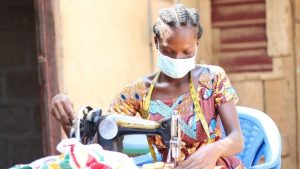
In remote parts of Ghana, children are often compelled to drop out of school to contribute to family income. In some cases this leaves them vulnerable to abuse. Providing a vocational pathway to young people to help them when their parents cannot, is a part of the ministry of African Enterprise Ghana. Amongst the hundreds of beneficiaries/graduates per year, Selina had it as hard as many. Emerging from a polygamous family of 11, Selina life was transformed after enrolling in the Ghana Street kids apprenticeship program. On completing her 3 year course, Selina now works in partnership with her mother to support her family and save toward creating their own tailoring shop. We are grateful to God that her future has a greater certainty than ever before.
 A testimony from Kenya
A testimony from Kenya
“My name is Elvis Oltunga, I am 15 years old and I live in Korogocho slums with my parents and 3 siblings. I have just completed my primary school studies at Totola Primary School in Korogocho and I am looking forward to high school. I am very grateful to AEE for supporting me with school shoes and food for my family.
Hand Washing Stations Constructed at Early Childhood Development Centers (ECDCs)
A child in Rwanda is considered poor if they have no access to at least three of the following nutrition, water, sanitation, housing child protection (UNICEF Rwanda 2018, Child Poverty in Rwanda Summary). The cycle of poverty threatened to escalate during covid, however thanks to the work of AE Rwanda, washing stations were built at five early development centres to ensure that children had better access to sanitation and water to enable these schools to reopen.
With these raised hygiene standards, transmission of the covid virus and disease is significantly reduced. We give thanks for support and prayers that enabled us to make these important steps forward in consultation with communities.
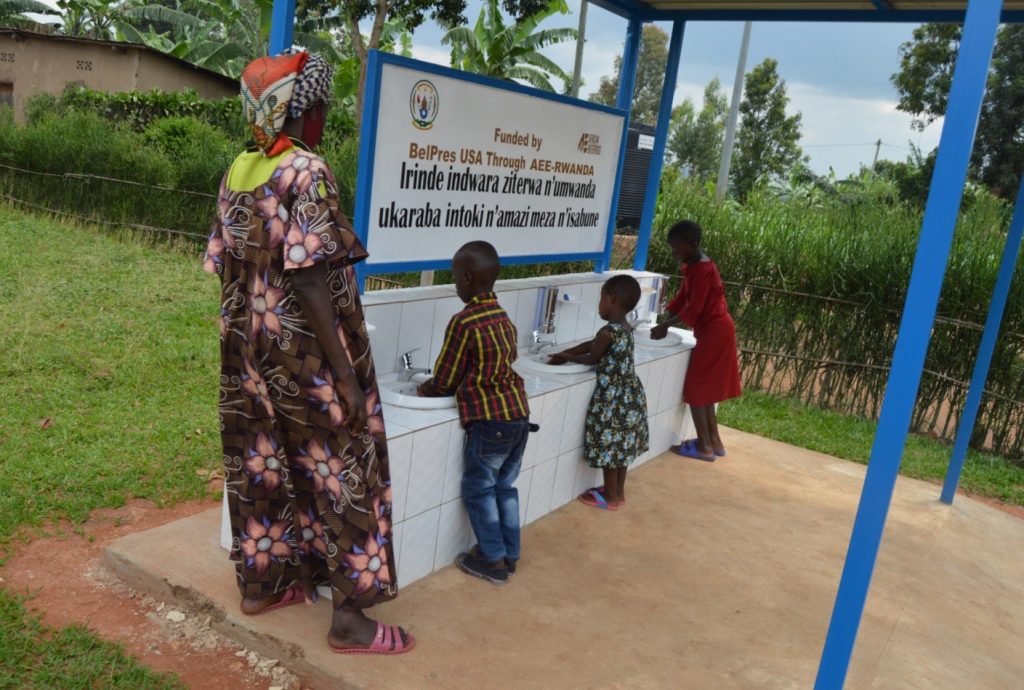
Testimony from South Sudan
My name is Mrs. Sabi Agile, I am a mother of 5 children. My family was displaced from our home in Goro after fighting broke out between 2 tribes. For many nights we could not sleep in our houses and slept in the 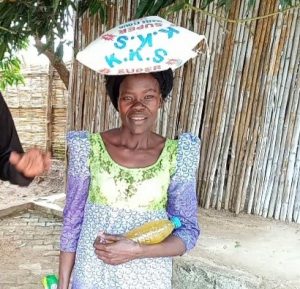 bushes due to fear of attacks and after many got killed we decided to flee and seek refuge in another area.
bushes due to fear of attacks and after many got killed we decided to flee and seek refuge in another area.
We walked for many hours without food or water and the children were crying but we had to keep moving until we got to Gudele where we felt safer and sought refuge from friends and relatives. Life has been very difficult here since we are not farming or doing any work to be able to buy food and other things for the family and we have been forced to rely on well-wishers for our daily survival as we wait to return to our homes when the fighting stops.
I am very grateful to African Enterprise for the gifts of food and soap that they have brought us today, we were not expecting it but God heard our cry and sent them to us. I am happy that for the next few days I will not have to worry about food for my children and I am very grateful to African Enterprise for your kindness and love to us.
Donate to Aid & Development Programs
“The scientific community has set a new standard for vaccine development.Now the international community must set a new standard for access.” – Tedros Adhanom, WHO Director-General.
Global Health issues extend beyond national borders, and cannot be resolved by any single nation. This is obviously the case with the COVID pandemic. With the continual emergence of new COVID strains around the world, a global health approach is the only way to end the pandemic.
It is an incredible achievement that, within a year of the emergence of COVID-19, vaccines have been developed that, with rigorous testing, have been proven safe and effective. As of the 22nd February, COVID vaccines are being administered in 90 of the world’s nations. These include 57 high-income countries and 33 middle-income countries, but not a single low-income country.
COVAX is a joint initiative, led by the World Health Organization (WHO), that aims to ensure that COVID vaccines are shared fairly among all nations. Having raised US $6 billion (with a target of US $ 8 billion), COVAX plans to deliver more than 2 billion vaccine doses to 190 countries in less than a year. In Africa, 35 low-income countries will receive COVID vaccines from COVAX at no cost. In addition to COVAX efforts, the African Union has secured 670 million vaccine doses for Africa, to be distributed in 2021 and 2022, as countries secure their own financing.
In what will be Africa’s largest ever mass vaccination campaign, COVAX will start shipping nearly 90 million vaccine doses to Africa this month. The initial phase of vaccine deployment will enable the immunisation of 3% of the African population, starting with health care workers. By the end of the year, COVAX aims to vaccinate at least 20% of people in Africa.
However, COVAX shipments will depend on the production capabilities of vaccine manufacturers, as well as the readiness of countries. Recipient countries are required to submit adequate national deployment and vaccination plans, if they are to receive vaccines. In January, the WHO assessed African nations, on average, to be 42% ready for their mass-vaccination campaigns. Despite showing progress, much work is required for African nations to reach the desired readiness benchmark of 80%.
Health systems must be strengthened if COVID vaccination is to be rolled out effectively across Africa. However, it is encouraging to see current advances across all sectors, as the world comes together in the fight to eliminate the global pandemic.
Africa in 2021 – progress and challenges
Despite significant challenges, and persistent uncertainty, Africa has made extensive progress in recent years.
Since the year 2000, violent conflict in Africa has greatly declined. Data from the World Health Organization showed a 95% decrease in African conflict deaths between the year 2000 and 2012. Although localised conflict increased between 2012 and 2015, conflict is once again experiencing a downward trend in Africa, with the main persistent threat now that of militant Islamic groups.
In the last 10 years, 34 of 54 African countries have improved their governance, leading to significant improvements in human rights. Although some elections have been tainted by corruption, and new democracies challenged by autocratic leadership, generally, there has been a continent-wide push towards democracy in Africa. Democracy has contributed to the alleviation of African poverty, but in countries where it has stalled, economic progress has been hindered.
Overall, Africa has made gains in reducing poverty. With high economic growth rates in most African countries, the proportion of African people living in poverty decreased from 54% in 1990, to 41% in 2015.
However, due to rapid population growth, the absolute number of poor people in Africa has actually increased. Also, inequality means that economic growth does not always eliminate poverty for ordinary people. While the United Nations Sustainable Development Goals (SDGs) aim to eliminate all forms of poverty by the year 2030, recent estimates by the Africa Growth Initiative expect poverty in Sub-Saharan Africa to have reached 25% (at best) or 30% (at worst) by the year 2030.
The COVID-19 pandemic has had a significant impact on Africa’s economic growth. In 2020, Sub-Saharan Africa experienced its first recession in 25 years. Per capita income in the region decreased by over 5% in 2020, reducing the average individual’s income to 2013 levels.
It is difficult to assess the health impacts of the pandemic in Africa, as COVID testing remains low in most regions. Africa’s reported death rates for COVID-19 have been low, attributed by some to its young population. However, the pandemic has placed additional pressure on the fragile health systems of African countries, placing previous health gains at risk.
In 2021, the global pandemic has made life uncertain for all of us. But uncertainty is no stranger to Africa. Sub-Saharan Africa, with its 1 billion people, half of whom will be under 25 years old by 2050, does face an uncertain future.
However, in Christ, with your support and the partnership of the local church, Africa’s uncertainty is turned to hope.
Not just COVID-19 has exponential growth. The Gospel does too.
AE’s home-based evangelism strategy encourages individuals across Africa to make use of their own social networks to share the Gospel. So far, over 2,500 people have been trained to share their personal testimonies via social media.
Nancy from the African Enterprise Kenya team has been so passionate about this opportunity that she’s shared the Gospel with over 300 people!
In Africa, amongst people so passionate for the Gospel, there truly is an exponential impact. Like no other place on earth, this passion has seen our young evangelists preach in buses, hospitals, marketplaces and wherever they find themselves.
This is why, in the past year, we saw 1.3 million people reached with the good news of Jesus in Africa.
Even during lockdown, people are trying to make sense of what is happening, and are still so receptive to the Gospel. Together, we aim to reach 900,000 people and train 6,000 evangelists to reach out in a COVID-safe way. Even during these times, we estimate that for every dollar we receive, we are able to reach at least three people with the Gospel of Jesus Christ.
This is all through the efforts of 11 small teams based across Africa, who multiply the Gospel’s impact by mobilising churches, volunteers and evangelists to reach into their cities in unity and strength. This is the way that we will grow the Kingdom of Heaven. As yeast makes its way through dough. Or as seed sown in good soil. The potential for growth is boundless.
“May He who supplies seed to the sower, and bread for food, supply and multiply the seed you have sown and increase the fruits of your righteousness”
(2 Corinthians 9:10)
Missions in a COVID-19 world.
Our teams have refused to give up on the Great Commission, despite incredibly challenging circumstances in Africa.
Evangelism is the heartbeat of African Enterprise. We exist to share the eternal hope of the Gospel, and this hasn’t changed. In 2020, AE has developed a home-based evangelism (HBE) approach to share the Good News of Jesus, in spite of COVID restrictions.
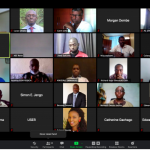 The HBE model equips believers to share the Gospel with their families and neighbours, in a structured and effective way. The approach focuses on personal evangelism, on a large scale. Mission volunteers facilitate home gatherings, where a pre-recorded or live Gospel message is shared using television, radio, mobile phone or social media platforms. The Gospel broadcast is followed by a personal testimony and an invitation to follow Christ, extended by the HBE facilitator.
The HBE model equips believers to share the Gospel with their families and neighbours, in a structured and effective way. The approach focuses on personal evangelism, on a large scale. Mission volunteers facilitate home gatherings, where a pre-recorded or live Gospel message is shared using television, radio, mobile phone or social media platforms. The Gospel broadcast is followed by a personal testimony and an invitation to follow Christ, extended by the HBE facilitator.
Between mid-April and July 2020, our AE teams trained 2,590 pastors and volunteers in the HBE approach, and have found the approach holds enormous potential for evangelism, as well as discipleship. For example, one church in Lukunga, DRC, was able to share Christ with at least 945 people, in multiple homes, on a single Sunday.
One mission volunteer in Kenya, Nancy, has shared the Gospel with over 300 people since the HBE approach was implemented there in May. When she shared the Gospel with a Facebook acquaintance, the 24-year old Margaret, Nancy had no idea that Margaret was suicidal. Nancy describes: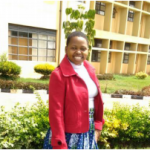
“I shared the Gospel and she made a commitment for salvation during one of our phone calls. The following day we met and from that time, we have created a relationship that is exceptional. It is wonderful to see the great transformation Christ has brought to this sister. She is now happy in the Lord. Today, as I see her smiling, I often have the sobering thought that, if the Gospel had not come her way, she would possibly not be alive!”
Our brothers and sisters in Africa are passionate for the cause of Christ, and our support means so much as they choose to “preach the word of God” and “be prepared, whether the time is favourable or not” (2 Timothy 4:2).

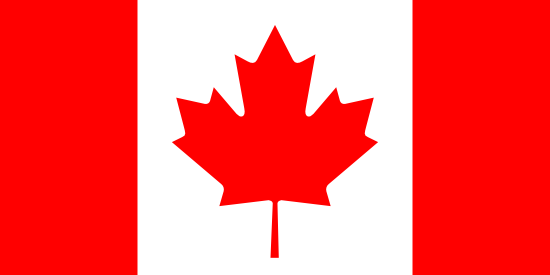
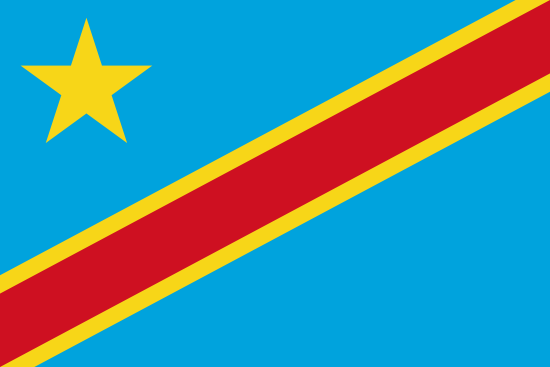
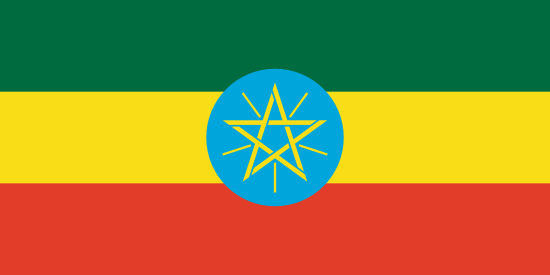
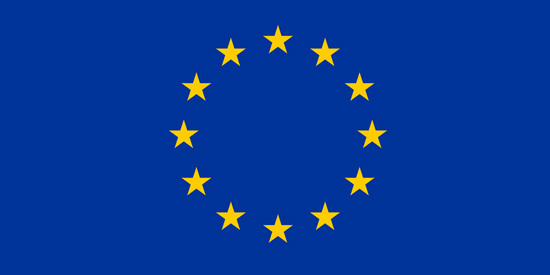
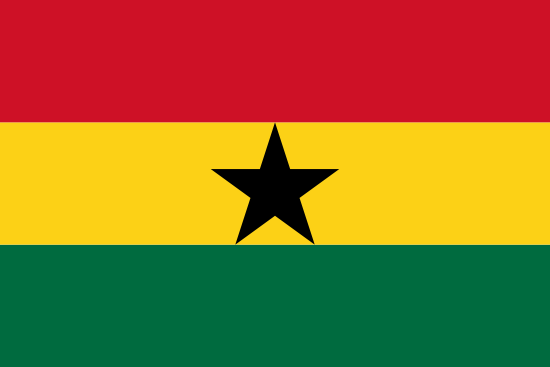


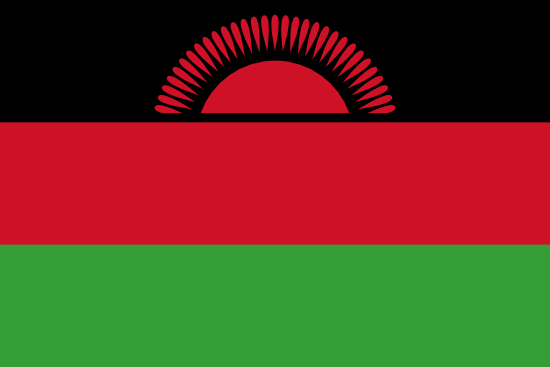
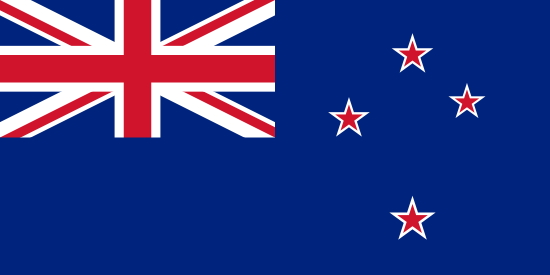
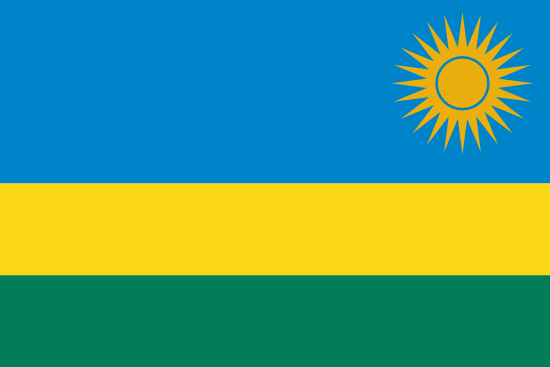
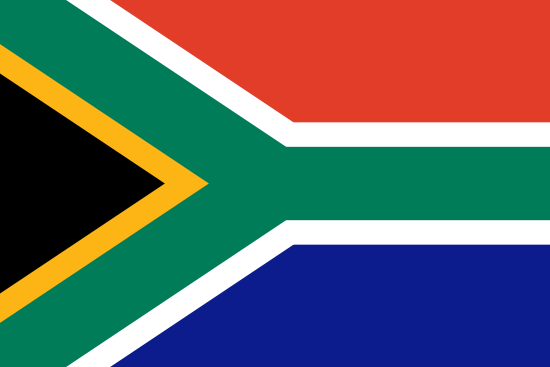


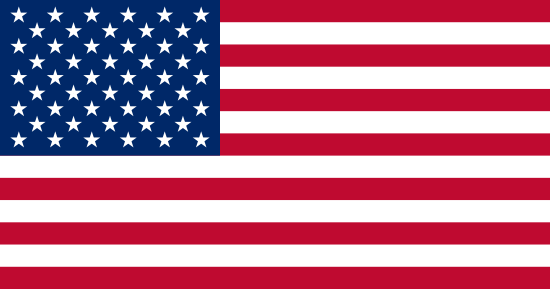
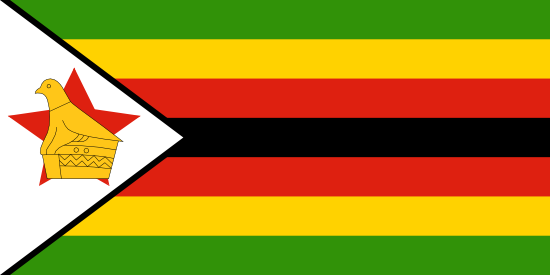



 A testimony from Kenya
A testimony from Kenya
 bushes due to fear of attacks and after many got killed we decided to flee and seek refuge in another area.
bushes due to fear of attacks and after many got killed we decided to flee and seek refuge in another area. The HBE model equips believers to share the Gospel with their families and neighbours, in a structured and effective way. The approach focuses on personal evangelism, on a large scale. Mission volunteers facilitate home gatherings, where a pre-recorded or live Gospel message is shared using television, radio, mobile phone or social media platforms. The Gospel broadcast is followed by a personal testimony and an invitation to follow Christ, extended by the HBE facilitator.
The HBE model equips believers to share the Gospel with their families and neighbours, in a structured and effective way. The approach focuses on personal evangelism, on a large scale. Mission volunteers facilitate home gatherings, where a pre-recorded or live Gospel message is shared using television, radio, mobile phone or social media platforms. The Gospel broadcast is followed by a personal testimony and an invitation to follow Christ, extended by the HBE facilitator.